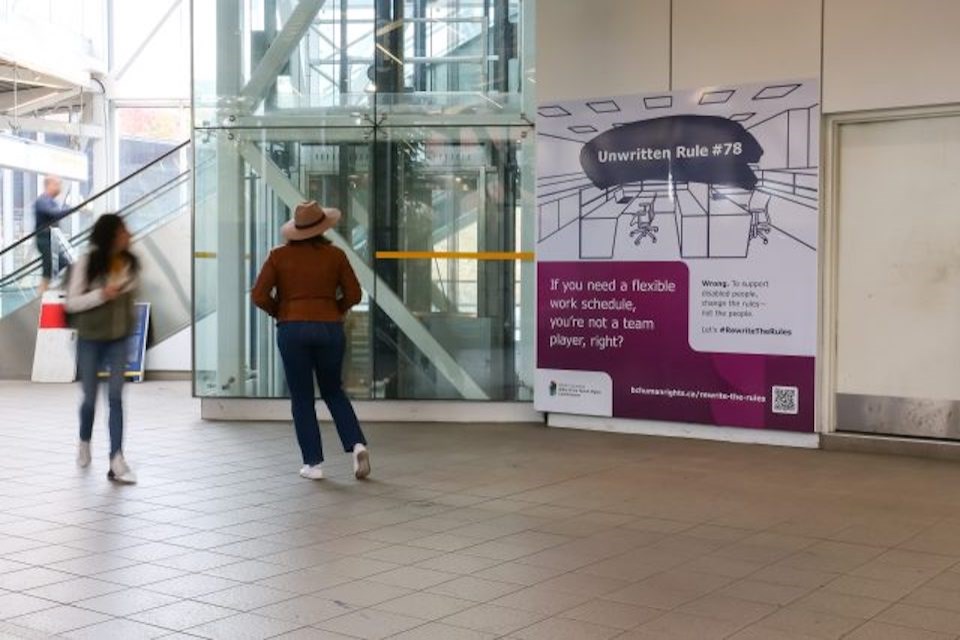This past Sunday marked the end of the #RewriteTheRules campaign, led by BC's Office of the Human Rights Commissioner in collaboration with representatives from the disability community.
The campaign's main goal was public awareness and education on ableism.
"We really wanted to foster dialogue in our communities about ableism, especially among those who don't identify as somebody with a disability, and also to inspire some self-reflection about how we contribute to ableist unwritten rules in society," says B.C.'s Human Rights Commissioner, Kasari Govender.
In B.C., 20.5 per cent of British Columbians between 15 and 64 live with a disability. That statistic doubles for people older than 65.
The campaign included murals and banners in SkyTrain stations, on bus shelters, in libraries across the province, and on social media with ads in 12 different languages.
Govender says the campaign was called #RewriteTheRules because they wanted to highlight the societal rules that many able-bodied folks take for granted and tend to overlook.
She says the office was fortunate enough to gain the perspective from key members of the disability community, including the BC Aboriginal Network on Disability, Disability Alliance of BC, Terrace and District Community Services Society and Third Space Charity.
"We really settled on this idea of drawing attention to the unwritten rules. Some of the examples of that are, what does a good listener look like? How might we approach learning in different ways that might work for a more wider range of folks and diverse folks in our students in our classrooms?" says Govender.
There are unwritten rules everywhere, she added, not only in the education sector but the health-care sector.
She says that for people with complex medical needs, which many people with disabilities have, the current practice of seeing a doctor for one complaint at a time can cause more harm and increase barriers to access, compared to able-bodied people.
"If we have assumptions that if you're coming often to the doctor, then you're a complainer — how does that impact the health and well-being of people with disabilities?"



